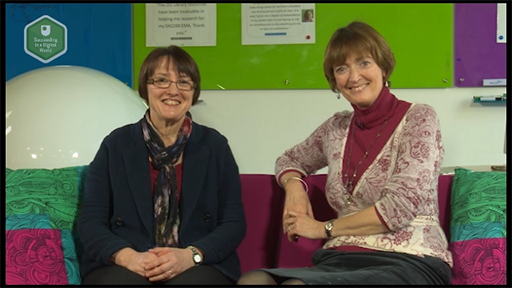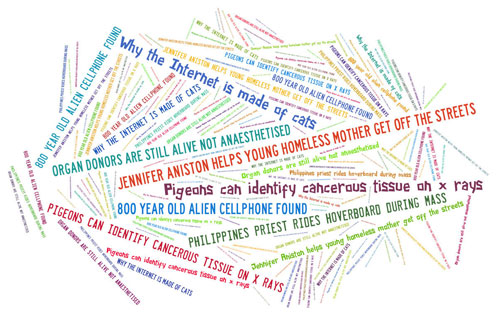Week 5: Critical consumption
Introduction
There are often bizarre stories on the internet.
‘Pigeons can identify cancerous tissue on x rays’
‘Why the internet is made of cats’
These are just two stories that have appeared in the media recently. Some are more plausible than others and we’ll be returning later to the question of which are true or not.
In previous weeks, you have been introduced to the idea of the information age and have explored some of its characteristics. The internet is teeming with information, on every conceivable subject and from many different sources (the image above shows a few headlines that have appeared in the media recently). These sources include an ever-increasing quantity of freely available user-generated information, and from an increasing number of online communities. There are advantages and disadvantages to this abundance. It is not hard to find information, but judging its reliability is less straightforward. Online social networks can be very beneficial, but how do you establish whether someone is telling the truth or not?
In Week 4 you considered what you can do to stay safe online and protect your privacy. This week, you will have the opportunity to think about which information sources are most relevant to you in your own context (also referred to as your ‘information landscape’) and learn techniques to deal with information overload. You’ll also find out how to develop a critical approach towards the people and information sources you encounter online. This is all part of making technology and the internet work for you, and helping you to stay in control of your digital life.

Transcript: Video 1: Introduction to Week 5
By the end of this week you should:
- have thought about which information sources are most relevant to you
- know how to find reliable information online quickly
- be able to judge how trustworthy online sources are.
This relates to both ‘Find’ and ‘Evaluate’ in the Open University digital skills framework as well as to ‘Information, data and media literacies’ in the Jisc digital capabilities framework that you came across in Week 2.

